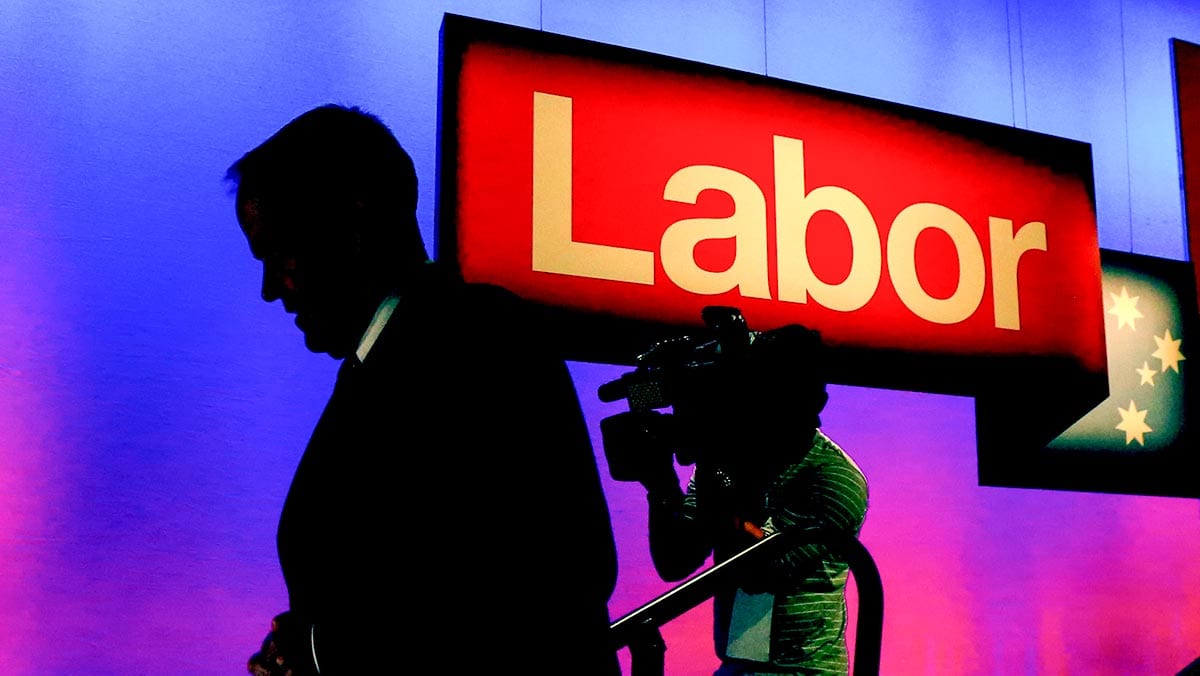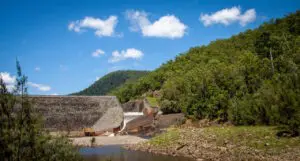The Australian Labor Party will support an expansion of Australia’s gas industry and increased investment in carbon capture and storage technologies, alongside a long-term commitment to zero net emissions in an updated national policy platform to be decided at the end of the month.
Labor is set to double down on its commitment to a net zero emissions target by 2050, as well as the need to set medium term targets, but will not lock in a 2030 target as it had done in the lead up to the 2019 election, according to a draft national policy platform published by the party on the weekend.
Labor will hold a “special platform conference” at the end of March, which will see the opposition party effectively lock in the high level principles that will inform the party’s election platform, with growing speculation that prime minister Scott Morrison could call an election before the end of the year.
Around 400 party delegates will debate the policy platform through an online conference, who will be drawn from the party’s parliamentarians, rank and file members and affiliated union representatives.
Factional alignment will also influence the setting of the policy platform, with the draft platform including a commitment Labor to a zero emissions target – a strongly held position of Labor’s ‘left’ faction – while also including expressions of support for gas and CCS technologies – showing the influence of the more conservative ‘right’ faction.
“Labor will implement a climate change and energy policy to reduce carbon pollution in line with the Paris Accord goal of limiting global warming to less than 2 degrees above pre-industrial levels and taking efforts to limit warming to 1.5 degrees above pre-industrial levels,” the draft policy platform says.
“Labor acknowledges this will require Australia’s economy to reach net zero domestic greenhouse gas pollution by 2050 and deliver medium term targets consistent with that goal and the best available scientific and economic advice.”
The draft platform has taken a wide approach to supporting new technologies, with Labor set to express support for increased investment in renewable energy technologies, energy storage and electric vehicles, as well as supporting a further expansion of the use of carbon capture and storage, and gas.
According to the proposed platform, Labor sees gas as contributing to Australia’s overall progress to achieving a zero emissions target.
“Labor recognises and supports the critical role that gas plays in the Australian economy. Labor recognises that gas has an important role to play in achieving Labor’s target of net zero emissions by 2050. Labor’s policies will support Australian workers in the gas extraction industry, building on Labor’s legacy of supporting sufficient and affordable gas supply for Australian industry and consumers,” the draft policy platform says.
Likewise, carbon capture and storage looks set to feature in Labor’s future policy plans, with the platform directly criticising the Coalition’s abolition of support programs designed to fund the development and expansion of CCS deployment.
“Supported by the advice of experts including the Chief Scientist and the Intergovernmental Panel on Climate Change, Labor recognises and supports the crucial role that Carbon Capture and Storage will play in abating carbon pollution and ensuring industries like heavy manufacturing and gas production are able to play their role in meeting carbon pollution reduction goals consistent with achieving the goals of the Paris Agreement,” the platform adds.
The stance comes despite advice from bodies like the Australian Energy Market Operator, which projected that gas will play a diminishing role in the electricity system as cheaper wind and solar push it out of the market. Experts have also pointed out that Australian gas exports likely work to increase global greenhouse gas emissions, rather than reducing them, by reinforcing the use of the fossil fuel.
Carbon capture and storage has had a troubled history in Australia and has yet to establish itself as a proven technology, with just one operating project in Australia which has experienced delays and issues with sand.
However, Labor will remain steadfast in its opposition to the development of any nuclear power industries and will look to incorporate elements of ‘just transition’ – supporting workers in industries impacted by the need to take action on climate change – directly into its policy platform.
Labor will also consider the creation of a dedicated agency to oversee and mitigate the management of coal power station closures, ensuring workers are provided opportunities to find new employment or provided fair access to redundancies and job transfers.
“Labor recognises the Paris Agreement is more than just a commitment to emissions reductions and therefore commits to implementing all of the components of the Agreement including its requirement for just transition planning involving local communities, unions, and industry to be a key part of Australia’s Nationally Determined Contribution under the Paris Agreement,” the draft platform says.
The balance between stronger long term emissions reduction targets, and the continued embrace of gas and carbon capture technologies follows ongoing tensions within the party over its climate policies, with vocal members of Labor’s right faction blaming too ambitious climate policies as contributing to an unexpected loss at the 2019 federal election.
Hunter region member Joel Fitzgibbon, has led calls for Labor to water down its climate change policies and to re-embrace fossil fuel industries, claiming that workers in the sector represent a core part of Labor’s voter base.
The tensions contributed to a decision made by leader Anthony Albanese to replace Mark Butler as the party’s climate change and energy spokesperson, who was replaced by former shadow health minister Chris Bowen.
It is understood that while Bowen, who is a senior member within Labor’s right faction, won’t be pushing for any changes to Labor’s long term climate targets, the newly installed climate and energy spokesperson will work to emphasise the investment and job creation opportunities being created through climate action, to counteract messaging from the Morrison government.
Bowen has already hit out at plans by the Morrison government to open up clean energy funding bodies, including the Clean Energy Finance Corporation, to invest in gas and carbon capture and storage, telling parliament that “gas does not meet the test of being a low-emissions technology.”









